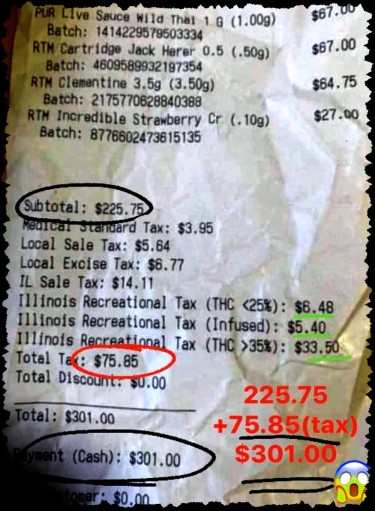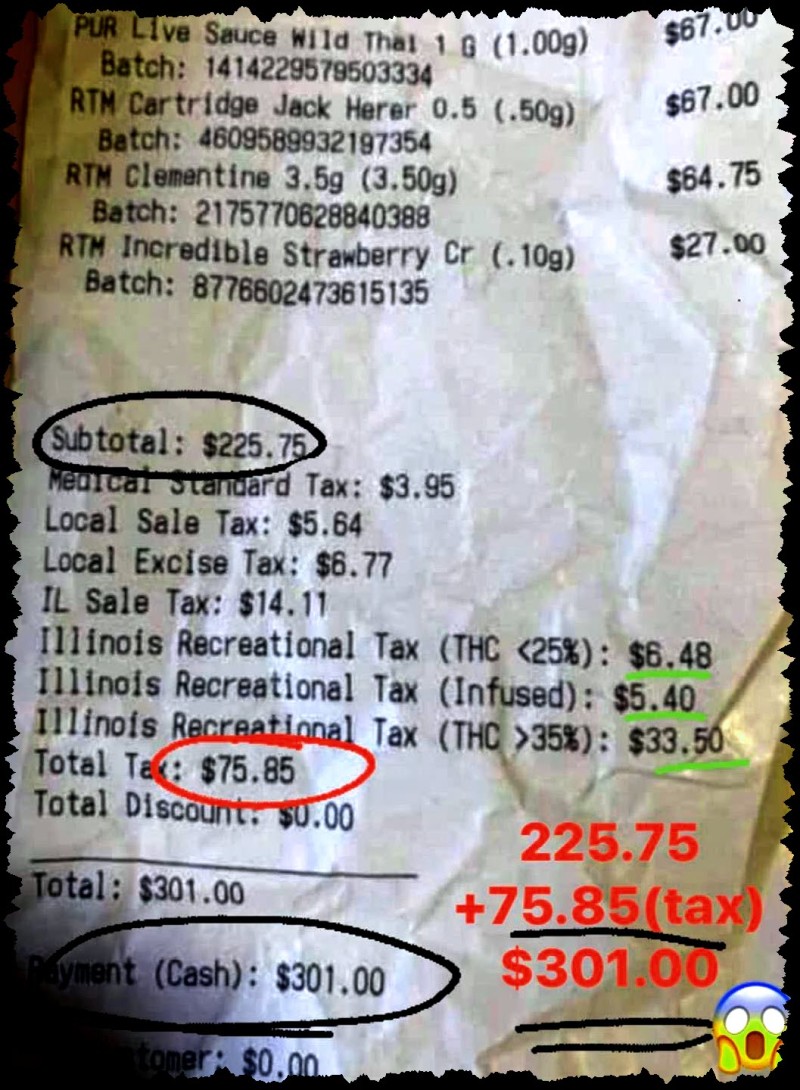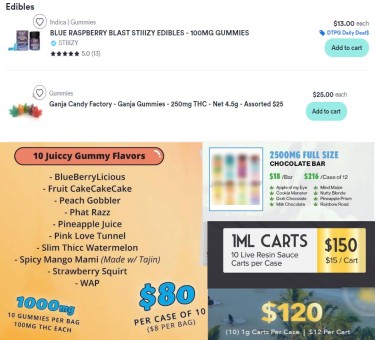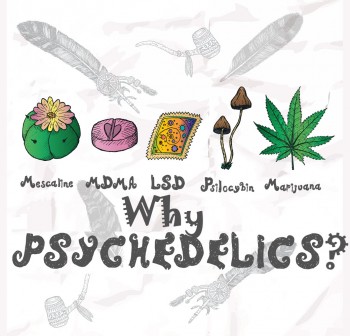
How Heavy Taxation is essentially “Stealth Prohibition”
Prohibition has long been a scourge on society, casting a dark shadow over the freedoms we hold dear. By stifling the civil liberties of its citizens, drug prohibition has fed the monstrous appetite of the state, allowing it to reach further into our lives and erode the very foundations of liberty.
Legalization emerged as the beacon of hope that would dismantle this oppressive regime, taking the wind from the sails of the black market, and restoring balance.
However, we failed to foresee the devious resilience of prohibition, its insidious ability to transform and adapt.
As it turns out, heavy taxation has become the new, more cunning form of prohibition. Rather than eradicating the black market, excessive taxes have breathed life into it, allowing it to persist and thrive in the shadows.
This is the cautionary tale of how even the most well-intentioned efforts to bring about change can be subverted by the stealthy persistence of prohibition's sinister grasp.
What Prohibition and Heavy Taxation and Regulation Have in Common
The treacherous tale of prohibition and heavy taxation and regulation is one of eerie parallels, as if the two were long-lost siblings separated at birth, only to converge upon a path of destruction. Both stem from the same misguided belief that the state knows best and can wield its power to control the choices and behaviors of its citizens. Just as the iron fist of prohibition sought to smother the sale and consumption of illicit substances, heavy taxation and regulation stifle the budding potential of legal markets, suffocating their growth beneath a crushing weight.
Consider the ill-fated era of alcohol prohibition in the United States. In the 1920s, the government's zealous crusade against alcohol led to a surge in organized crime, underground speakeasies, and tainted, dangerous beverages. Fast forward to the present day, and we witness a strikingly similar situation unfolding in the realm of cannabis. Exorbitant taxes and byzantine regulations have driven consumers into the welcoming arms of the black market, where shadowy figures peddle their wares, unconcerned with quality control or the safety of their customers.
California's cannabis market stands as a prime example of this phenomenon. Despite the state's efforts to legalize and regulate the industry, illegal sales continue to dwarf their legal counterparts, reaching a staggering $8 billion annually. The culprit? A complex web of taxes and fees, driving the cost of legal products to two or three times that of their illicit counterparts.
A chilling parallel can be drawn to the cigarette market in New York, where high taxes have led to a booming smuggling trade, accounting for over 53% of all cigarettes sold. The lesson is clear: when the state clamps down on a market with heavy taxation and regulation, it inadvertently breathes life into the very black markets it seeks to eliminate.
Like an ominous echo reverberating through history, the consequences of prohibition and heavy taxation and regulation share a dark, twisted commonality. They both serve to empower the state, restrict individual freedom, and fuel the growth of underground markets. These grim similarities serve as a stark reminder that the battle for personal liberty is far from over, and that vigilance is needed to prevent the resurrection of prohibition in a new, insidious form.
The Only Way to Beat the Black Market is to Beat Their Prices...
As the old adage goes, "if you can't beat 'em, join 'em." But when it comes to black markets, the best approach is not to join them, but to outsmart and outprice them. Creating a peer-to-peer marketplace that is accessible, affordable, and operates with minimal regulation can be the key to dismantling the stronghold of black markets on the cannabis industry.
In an ideal world, individuals over the age of 21 would be free to grow, gift, and even sell cannabis in small, "farmer's market" type establishments, without being burdened by onerous regulations. A $1,000 per year license, coupled with a cap on individual profit, could help nurture a thriving, grassroots marketplace that keeps the black market at bay.
Under this proposed "individual license," sales to dispensaries or authorized retailers would be prohibited, and no transactions could take place with organizations or businesses. This would ensure a 100% peer-to-peer marketplace, where cannabis enthusiasts could support one another and cultivate a sense of community.
For larger operations, a second, more heavily regulated marketplace could exist, catering to those who generate income beyond the maximum allowed under the first license. The second license would encompass all the heavy tax burdens and provide larger corporations access to the mass retail market. This two-tier licensing system would create a balanced environment in which small, individual sellers could coexist alongside larger, corporate entities.
I have written about this idea before, but I cannot stress enough the importance of bringing it to the forefront of public discourse. By presenting it as a viable, realistic option, we can help reshape the way people think about cannabis regulation and encourage them to embrace alternative approaches.
This dual marketplace model not only fosters a sense of community and camaraderie among cannabis enthusiasts, but also helps combat the black market by offering consumers a safer, more affordable, and more legitimate alternative. When the legal market can compete with the black market on price, quality, and accessibility, consumers will have little incentive to venture into the shadows for their cannabis needs.
As history has shown time and time again, heavy-handed regulation and exorbitant taxes only serve to drive consumers toward black markets, where prices are lower and the allure of illicit transactions is too tempting to resist. By implementing a two-tier licensing system that caters to both small-scale, peer-to-peer transactions and larger, corporate sales, we can create a more inclusive and equitable cannabis market that leaves the black market struggling to survive.
The path to defeating the black market lies not in the iron grip of regulation or the crushing weight of taxation but in the power of a fair and open marketplace that empowers individuals and communities. By promoting a dual marketplace model, we can cultivate a thriving cannabis culture that not only undercuts the black market but also fosters creativity, innovation, and connection among cannabis enthusiasts.
The key to dismantling the black market's dominance over the cannabis industry is to beat them at their own game by offering consumers a legal, safe, and affordable alternative.
The two-tier licensing system proposed here, with a focus on peer-to-peer transactions and a balanced approach to regulation and taxation, can help to create an inclusive and vibrant cannabis marketplace that leaves the black market in the dust.
By championing this idea and bringing it to the forefront of public discourse, we can pave the way for a more equitable and prosperous future for the cannabis community.
Do I think it will happen?
As a seasoned cannabis blogger and psychonaut, I have seen the landscape of the cannabis industry change dramatically over the past two decades. While there is a growing push for legalization and a shift in public perception, the reality is that the greed of politics, lobbying, and powerful interests continues to shape the laws and regulations that govern this industry. Despite my idealistic vision of a two-tiered marketplace that can effectively undercut the black market, I must admit that the prospect of such a system coming to fruition anytime soon seems unlikely.
The unfortunate truth is that the power dynamics within the cannabis industry are deeply entrenched, and the financial interests of politicians, lobbyists, and big businesses often eclipse the desires of the grassroots cannabis community. Unless there is a strong, sustained movement from the ground up, it is difficult to imagine the kind of sweeping change that would be necessary to implement a more equitable and inclusive marketplace.
That being said, the anarchist within me recognizes that there is a certain degree of subversion and defiance already at play in the current cannabis landscape. The so-called "grey market" – that nebulous space between the legal and illegal spheres – is home to countless individuals and small collectives who are already operating under the principles of the two-tiered marketplace I propose. They grow, share, and sell cannabis in a way that emphasizes community and cooperation, rather than profit and power.
By bringing these grey market operators into the legal fold, my proposed system would not only give them a legitimate space to compete with the black market but also help to divert money away from criminal cartels and into the hands of conscientious, community-minded individuals. While this may seem like a pipe dream in the current political climate, the very existence of the grey market – and the passion and commitment of those who operate within it – is evidence that the seeds of change have already been sown.
As we look to the future of the cannabis industry, it is essential that we remain vigilant and outspoken in our advocacy for a more equitable and just system. While the two-tiered marketplace I propose may not be on the horizon just yet, it is important to keep this ideal alive in our collective consciousness and use it as a guiding star as we continue to navigate the murky waters of cannabis politics.
In the meantime, the best we can do is to support grassroots movements, educate ourselves and others about the complexities of the cannabis industry, and continue to push for change at every level. By keeping the dream of a fair and open marketplace alive, we can help to shape the discourse surrounding cannabis and ensure that our voices are not drowned out by the cacophony of greed and power that currently dominates the industry.
In conclusion, while I do not believe that the two-tiered marketplace I propose will become a reality in the immediate future, I remain optimistic that the tides of change are shifting, albeit slowly. By continuing to advocate for a more inclusive and equitable cannabis industry, we can keep the flame of hope alive and work towards a future in which the black market is a relic of the past, and the cannabis community thrives in a fair and just marketplace.







